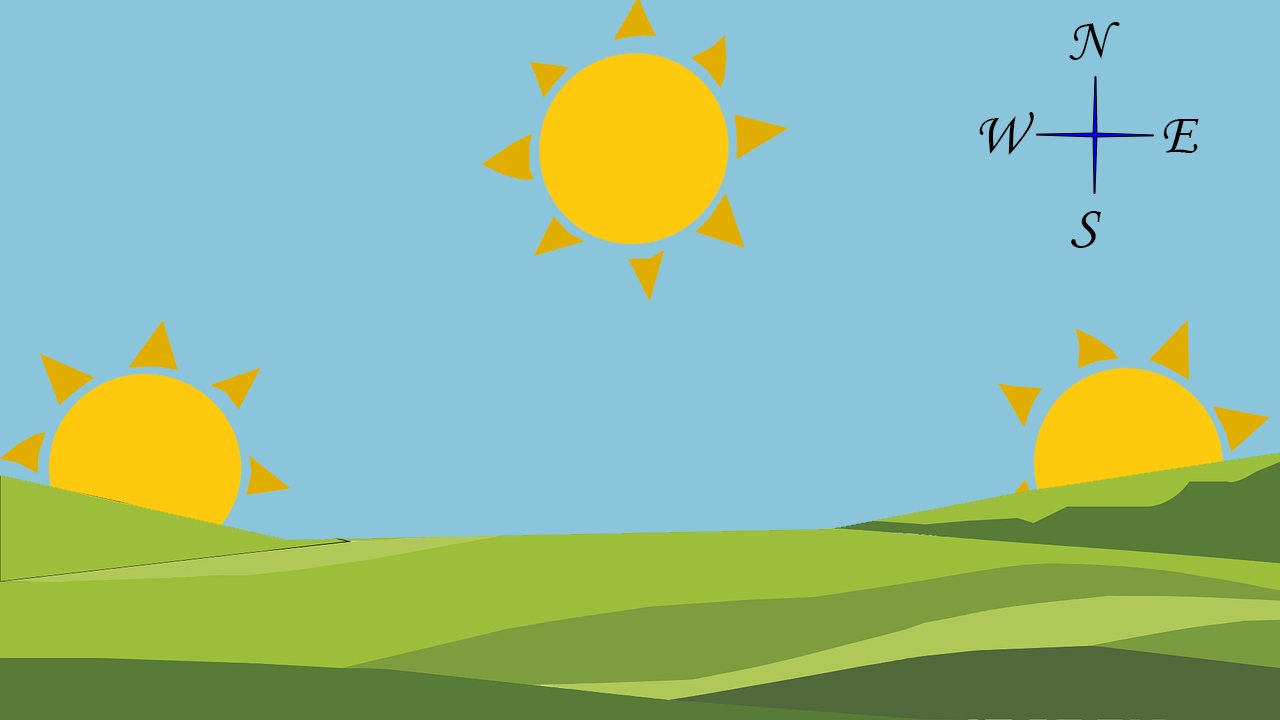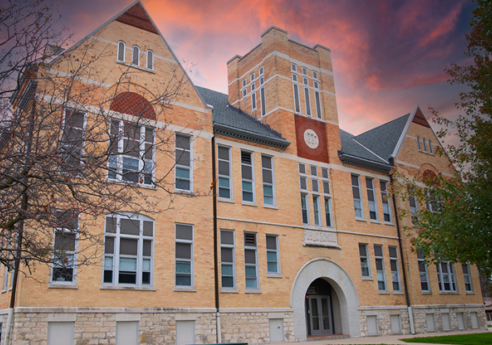With Earth Day right around the corner, it's a good time to start thinking about what you can do to make a difference and live more sustainably. Whether learning at home or in the classroom, one thing you can investigate is how we use energy.
Energy, the ability to do work, is part of everything we do and experience. Follow along with the Wisconsin K-12 Energy Education Program (KEEP) as we explore renewable energy sources and start thinking about how we use energy at home and school.
Let’s begin our energy journey by looking at our largest source of energy: the sun. The sun’s light creates shadows. Why is it important to understand how shadows change throughout the day?
Shadows through the day
Shadows are dark shapes that form when an object blocks light from hitting a surface or background. You can see your own shadow around you in a lit room or outside on a sunny day. This occurs when your body blocks light from a lamp or the sun from reaching the environment around you.
The sun rises in the east and sets in the west. This means the sun rises low in the sky, gets higher and higher until mid-day, and then starts to lower, or set, as the afternoon and evening approach. Imagine watching a tree’s shadow on a sunny day. The tree doesn’t move, but its light source, the sun, does. That means the shadow will change as well!

Why does this matter?
The sun gives us light and heat. If objects are blocking the sun from getting to us, that means light and heat aren’t effectively getting to us either. For example, you are playing outside on a hot, sunny day and could really use a break. You can take shelter under a tree or canopy to stay in the shadows. Those shadows under the tree and canopy are cooler than the surrounding area.
This isn’t the only reason we need to know where shadows are throughout the day. The sun is a renewable energy resource. This means we can harness the energy from the sun over and over and over again! One way we can do that is by using the sun to make electricity. Have you ever seen a solar panel?

Solar panels use the light energy from the sun to help us create electricity! If shadows are blocking the sun from getting to the panels, then we can’t harness that energy as efficiently!
What are some other reasons we would want to know where shadows are falling?
We might not have solar panels on our home, on our school, or even around our town, but we do use the sun and the shadows created in other ways! Remember the shade from a tree example? What are some other ways you use the sun and shadows?
It’s your turn!
Learn how you can track your own shadow throughout the day with the first video in KEEP’s Exploring Energy Outdoors Series.
Take some time today to look for ways you use energy around your household. What are ways you can decrease your energy consumption? Check out this week’s sustainability focus ideas below!
Lighting and energy used by electrical outlets
- Use LED lightbulbs
- Turn off the lights when you leave a room
- Unplug electronics when shut off
Join KEEP next week as we continue to look at renewable energy resources and how we can use energy more sustainably as we get closer to Earth Day!
Teacher/Parent Resources:
- BSF Activity Sheet - Seeking Shadows K-3.pdf (uwsp.edu)
- KEEP Activity - ShadowsintheSchoolyard.pdf (uwsp.edu)
- Video - https://youtu.be/aJw2lmohu2c
Don't forget to share your student's results on social media by including the hashtag #EarthDayPledge as well as tagging Focus on Energy and KEEP to receive a FREE seedling to plant.

Learn more at www.keepprogram.org




